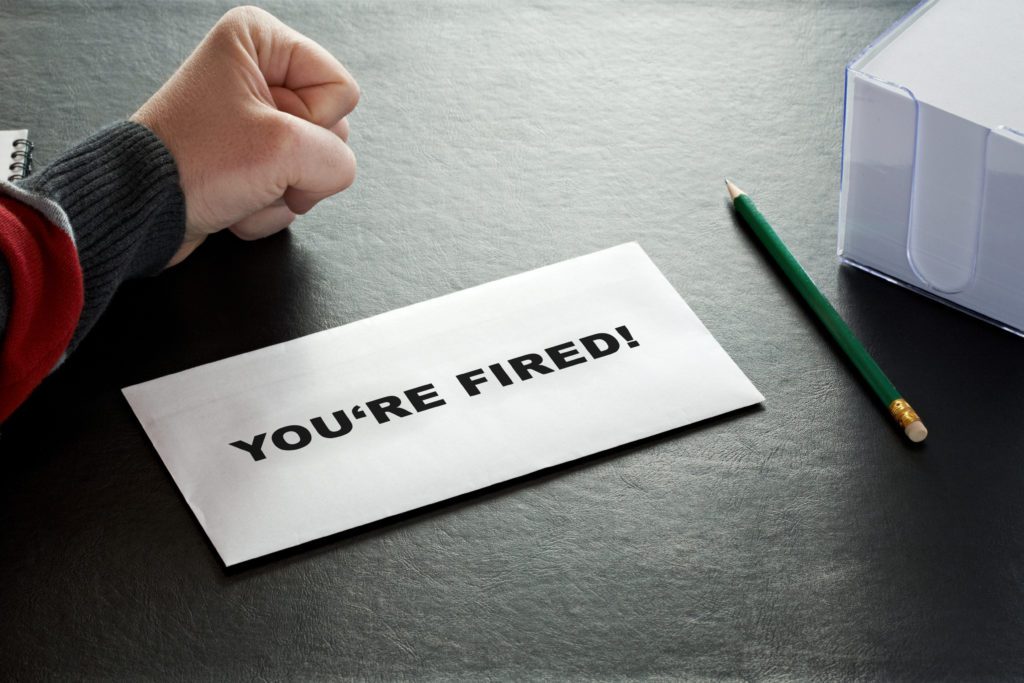BRIAN J GRABER LLC is an Illinois Wage & Hour retaliation lawyer representing Illinois employees who are retaliated against for exercising their rights under Illinois law to be paid their earned wages and compensation. The Illinois Wage Payment and Collection Act provides one of the strongest remedies for Illinois employees who are retaliated against for insisting on his or her rights to be timely paid their earned wages. Illinois employees may also have a right to be free from retaliation under federal wage & hour law. Click here to learn about your rights under federal wage & hour retaliation law.
Illinois does not recognize common law tort claims for retaliatory discharge when employers fire employees for exercising their rights under the Illinois Wage Payment and Collection Act to collect disputed unpaid wages. See McGrath v. CCC Information Services, Inc., 314 Ill. App.3d 431, 440 (1st Dist. 2000). Effective January 1, 2011, the Illinois legislature rewrote the Illinois Wage Payment and Collection Act, 820 ILCS 115/14 to include a statutory cause of action for employees retaliated against for exercising their rights under the IWPCA in disputes over unpaid wages and compensation. Illinois employees now have statutory claims against their employers for Illinois wage & hour retaliation. The anti-retaliation provision of the Illinois Wage Payment and Collection Act provides as follows:
Any employer, or any agent of an employer, who discharges or in any other manner discriminates against any employee because that employee has made a complaint to his employer, to the Director of Labor or his authorized represetative, in a public hearing, or to a community orginization that he or she has not been paid in accordance with the provisions of this Act, or because that employee has caused to be instituted any proceeding under or related to this Act, or because that employee has testified or is about to testify in an investigation or proceeding under this Act, is guilty, upon conviction, of a class C misdemeanor. An employee who has been unlawfully retaliated against shall be entitled to recover through a claim filed with the Department of Labor or in a civil action, but not both, all legal and equitable relief as may be appropriate. In a civil action, such employee shall also recover costs and all reasonable attorney’s fees.
Illinois Wage Payment and Collection Act, (IWPCA), 820 ILCS 115/14(C).
Whose Covered By IWPCA
The IWPCA, 820 ILCS 115/1, applies to all employers and employees in the State of Illinois, including employees of units of local governments and school districts. However, the IWPCA, 820 ILCS 115/1, does not apply to employees of the State of Illinois government or the federal government.
The IWPCA, 820 ILCS 115/2, broadly defines the term “employer” to include management employees “acting directly or indirectly in the interest of an employer in relation to an employee, for which one or more persons is gainfully employed.” Therefore, management employees acting on behalf of their employer may have liability for violating employees’ rights under the IWPCA. The IWPCA, 820 ILCS 115/13 expressly imposes liability on management employees who knowingly permit an employer to violate the provisions of the IWPCA.
The IWPCA, 820 ILCS 115/2, broadly defines “employee” to include any individual permitted to work by an employer in an occupation, however, it does not include independent contractors. Whether or not an employee is misclassified as an independent contractor requires a detailed factual legal analysis. See 56 Ill.Adm. 300.460. The employee must perform his or her work in the State of Illinois in order to have coverage under the IWPCA. Contact BRIAN J GRABER LLC, an Illinois wage & hour retaliation lawyer at (312) 291-4648 for a free confidential consultation about your rights to be free from retaliation for exercising your rights under the Illinois Wage Payment and Collection Act to unpaid earned wages.
Employer’s Obligations Under the IWPCA
The IWPCA governs the payment of wages to employees and the deductions employers can make from an employee’s paycheck. The IWPCA generally requires employers to do the following:
- Requires every employer to pay all wages earned at least semi-monthly. Wages are to be paid no later than 13 days after the end of the pay period in which the wages were earned. However, wages of executive, administrative and professional employees, as defined in the Federal Fair Labor Standards Act of 1939, may be paid once a month. See IWCPA, 820 ILCS 115/3.
- Commissions may be paid once a month. See IWPCA, 820 ILCS 115/3.
- Gratuities to employees are the property of the employees, and employers shall not keep gratuities. Failure to pay gratuities owed to an employee more than 13 days after the end of the pay period in which gratuities were earned constitues a violation of this Act. IWPCA, 820 ILCS 115/4.1(a).
- Requires employers to reimburse employees for all “necessary expendatures” incurred by the employee within the employee’s scope of employment and directly related to services perfromed for the employer. See IWPCA, 820 ILCS 115/9.5.
- Under the IWPCA, 820 ILCS 115/10, an employer cannot change an employee’s rate of compensation or rate of pay without first notifying the employee before the effective date of the change. Under 56 Ill.Adm. 300.630(d), an employer cannot rely upon an employee’s continued employment as an affirmation that the employee consented to an adverse modification of the employee’s rate of compensationwhen the employee was not notified in writing of the modification prior to its effective date.
Contact BRIAN J GRABER LLC, an Illinois wage & hour retaliation lawyer, at (312) 291-4648 to learn more about your rights to be free from wrongful termination or retaliation for exercising your rights under the Illinois Wage Payment and Collection Act. Illinois employees may also have rights under federal wage & hour law. Click here to learn about your federal rights under federal wage & hour law.
Illinois Wage & Hour Retaliation Protected Activity
An employee must engage in some conduct or activity defined as “protected activity” under the IWPCA, 820 ILCS 115/14(c) in order to have protection from retaliation or discrimination for that protected activity. Generally, protected activity under the IWPCA, 820 ILCS 115/14(c), includes, but is not limited to the following activities:
- Making complaints to his/her employer that he or she was not paid all earned wages in violation of the IWPCA;
- Filing a lawsuit against his or her employer for not being timely paid all earned wages in violation of the IWPCA;
- Filing an administrative complaint against his or her employer with the Illinois Department of Labor;
- Testifying in a lawsuit or administate proceeding with the Illinois Department of Labor about an employer’s alleged violations of the IWPCA.

Any complaints to management should be sufficiently clear and detailed for a reasonable employer to understand it in light of both content and context, as an assertion of rights protected by the IWPCA. See Kasten v. Saint-Gobin Performance Plastics Corp., 563 U.S. 1, 14 (2011) (discussing the sufficiency of oral complaints of FLSA violations made to an employer).
An employee can file a complaint with the Illinois Department of Labor for unpaid wages here. Filing a complaint against your employer with the Illinois Department of Labor for unpaid earned wages is considered protected activity under the IWPCA, 8210 ILCS 115/14(c).
Illinois Wage & Hour Retaliation Burden of Proof
An employee claiming he or she suffered retaliation in violation of IWPCA, 820 ILCS 115/14(c) must generally prove the following elements:
- The employee engaged in one or more IWPCA-protected activities described in 820 ILCS 115/14(c) listed above;
- The employee was terminated or suffered some form of retaliation, and
- The IWPCA-protected activity was the proximate cause of the termination or retaliation.

If you believe that you were fired or suffered retaliation for exercising your rights under the Illinois Wage Payment and Collection Act, contact BRIAN J GRABER LLC, an Illinois wage & hour retaliation lawyer, at (312) 291-4648 for a free confidential consultation. Do not let your employer cheat you out of your earned wages and fire you in retaliation for exercising your statutory rights under the Illinois Wage Payment and Collections Act to demand full payment of all wages earned.
Key Takeaways
- BRIAN J GRABER LLC specializes in Illinois Wage & Hour retaliation cases for employees asserting their rights under Illinois law.
- The Illinois Wage Payment and Collection Act protects workers against retaliation for claiming unpaid wages.
- Employers must pay all wages earned promptly and cannot change compensation without prior notification.
- Protected activities under the IWPCA include filing complaints or lawsuits about non-payment of wages.
- Employees must prove retaliation was linked to their protected activity to seek remedies under the IWPCA.
Estimated reading time: 7 minutes
